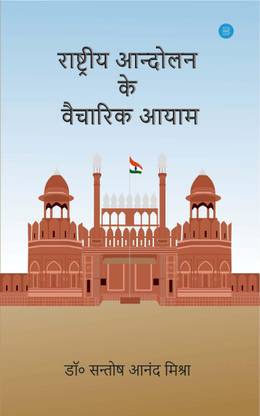Gopal Krishna Gokhale: India's liberal nationalist and Gandhi's political guru, (9 May 1866- 19 February 1915)
Introduction
If we search for the original sources of ideology, morality and non-violent struggle in the history of India's freedom struggle, then the name of Gopal Krishna Gokhale appears paramount. He was a leader who on the one hand criticized the wrong policies of the British rule, on the other hand he also believed that reform in India can be brought about permanently only through constitutional methods and peaceful dialogue. He was one of the intellectual and moral pillars of modern India.
Early life and education
Gokhale was born on 9 May 1866 in Ratnagiri district of Maharashtra. His family was not financially well off, yet his parents gave top priority to education. Gokhale graduated from Deccan College, Pune. He became a part of the new wave of entry of English education in Indian society and that gave him a modern outlook.
He received guidance from social reformers and thinkers like Justice Mahadev Govind Ranade. Ranade became his role model. He taught Gokhale that not only politics, but social reform is also equally important.
Political rise and role in Indian National Congress
Gokhale joined the Indian National Congress in 1889. At that time, the Congress was an intellectual organization that put forward the problems and demands of Indians before the British government. Gokhale soon became the leading spokesperson of its 'Moderate' faction.
Congress session of 1905 - Gokhale as President
In 1905, he was elected President of the Congress at the Benares session. At that time, the partition of Bengal was a major political issue. Gokhale expressed his views on this with deep sensitivity. He was against the partition but did not use violent or emotional language to protest against it.
Servants of India Society (1905)
Gokhale realized that India needed not only political independence but also social and educational renaissance. For this purpose, he founded the "Servants of India Society". The main objectives of this organization were:
To train youth for national service
To promote education in the country
To run campaigns for health, hygiene and social awareness
This organization is still working and contributes to social work.
Work in the Imperial Legislative Council
Gokhale became a member of the Imperial Legislative Council in 1902. It was the highest legislative body of British India. There he did a deep analysis on economic policies, education system and tax system. He always questioned the government on the plight of Indian farmers, excessive taxes and lack of education.
One of his famous speeches "The Budget Speech of 1902" is still counted among the most sharp criticisms of British Indian history.
Influence on Mahatma Gandhi
When Gandhiji returned to India from South Africa in 1915, Gokhale advised him to understand the Indian conditions. He told Gandhi to tour India for a year and not to start any political movement immediately. Gandhiji called him his 'political guru' and followed his advice throughout his life.
Gandhiji wrote -
"If I had no other source for the guidance of my life, but Gokhale's character, I would still know how to act."
Ideological differences with Bal Gangadhar Tilak
Gokhale and Tilak were both nationalists but their methodologies were different.
Gokhale believed in dialogue, reform and constitutional methods.
Tilak believed in Swadeshi, boycott and mass movement.
There were occasional ideological conflicts between the two, but they maintained personal respect for each other. It was Gokhale who helped in the efforts to release Tilak when he was sent to jail by the British.
Contribution in the field of education
Gokhale believed that India cannot be independent without education. He did extensive research on "Hunter Commission" and "Indian Education Policy". He wanted that along with English education, education should also be imparted in Indian languages.
Death and legacy
Gokhale died on 19 February 1915 at the age of only 49. His death was seen as the end of a thoughtful and moral leadership. But his ideas, institutions and disciples keep his legacy alive even today.
Major legacies:
His values and vision in Mahatma Gandhi
Servants of India Society
Moral foundation of Indian National Movement
Conclusion
Gopal Krishna Gokhale was the ideological architect of the Indian freedom struggle. He gave moral, intellectual and peaceful direction to the struggle. In the political history of India, he established the tradition of 'dialogue and reform'. His generosity, love for education and integrity are still a source of inspiration for all Indians.
If Tilak was the "roaring storm" of the freedom struggle, Gokhale was its "calm conscience".













0 Comments
Thank you